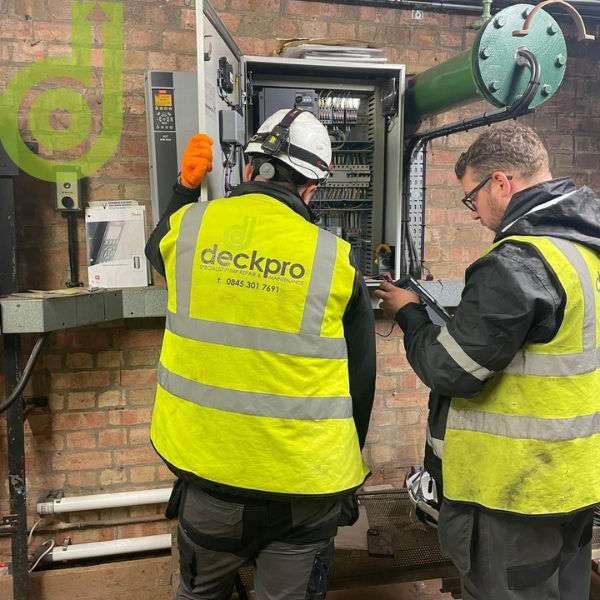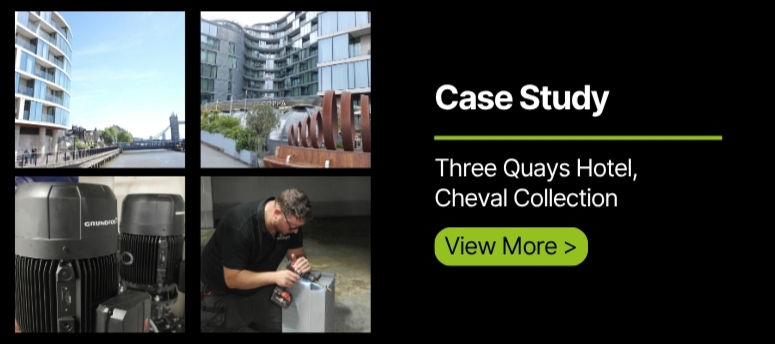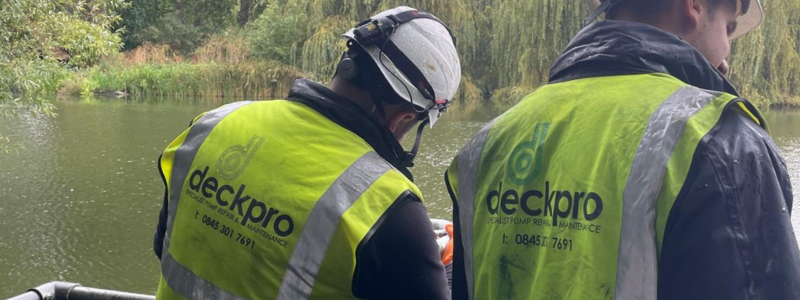Breakdowns Are Bad for Business (and Even Worse for Guest Experience)
- Jul 30, 2025
- 4 min read
Why proactive pump maintenance is critical in hospitality environments — before failure turns into complaint.
In the fast-paced world of hospitality, where guest satisfaction directly impacts revenue, pump failures are among the most disruptive — and often overlooked — operational risks. From busy hotels and casual dining spots to spas, pubs, and holiday parks, pumps work behind the scenes to maintain comfort, sanitation, and smooth service. But when they fail, the consequences ripple across every part of the business.
Equipment Failures Are Happening Daily

In hospitality settings, unexpected equipment breakdowns are a leading cause of off-market rooms and service delays. In an article published by CBRE earlier this year, hotel maintenance costs rose by 5% in 2024, driven by higher labour and supply chain costs, and partly due to deferred asset investment.
At the centre of many of these failures? Pump systems:
HVAC pumps (heating, cooling, ventilation)
Water and waste pumps (hot water circulation, wastewater removal)
Recreation pumps (pool and filtration systems)
These systems endure near-constant use in hotels and restaurants, with no real downtime between guests or services. In these conditions, pumps deteriorates faster and failures aren’t a matter of if, but when.
The Immediate Impact: From Comfort to Complaint in Minutes
Pump failures are one of the fastest ways to trigger guest dissatisfaction. Common failures that often stem from critical pump systems include loss of hot water, malfunctioning air conditioning, and blocked drains. In food service, even short pump failures can mean lost revenue and compliance risks:
Fault / Area of Risk | Impact on Hotel Environments | Impact on Restaurant / Food Service Environments |
Heating and Boiler Systems | Failure of domestic hot water circulation pumps causes delays or loss of hot water to guest rooms, impacting comfort and satisfaction. Boiler system pump issues can disrupt heating, leaving rooms too cold. | Loss of hot water affects kitchen sanitation, dishwashing, and cleaning operations, risking hygiene compliance. |
Chiller Systems | Failure of chilled water circulation pumps can reduce HVAC cooling capacity, making guest areas uncomfortable during warm weather. | Cooling system failures disrupt refrigerated food storage, risking spoilage and regulatory breaches. |
Boosted Water Systems | Boosted water pump failures can reduce water pressure in guest rooms and public areas, impacting showers, taps, and fire safety systems. | Inadequate water pressure can affect kitchen operations, cleaning, and sanitation effectiveness. |
Wastewater and Sewage | Sewage pump failures cause backups, odours, and unsanitary conditions, risking health violations and guest complaints. | Grease trap and wastewater pump failures lead to blockages and potential health code violations, risking temporary closures. |
Stormwater Systems | Stormwater pump failures can cause flooding risks, affecting basement areas, parking garages, and potentially disrupting hotel operations. | Flooding due to stormwater pump failure can impact back-of-house areas, storage, or loading docks, disrupting service. |
Swimming Pools & Spas | Pool and spa circulation pump failures force facility closures and pose water quality and safety risks. | N/A |
What to Look Out For: Warning Signs Before a Breakdown
Most pump failures don’t come out of nowhere. Many show visible or audible signs beforehand. Here’s what to watch for:
Unusual noise: Grinding, whining or banging sounds can indicate misaligned or failing mechanical components (e.g., bearings, impellers).
Leaking pumps: Moisture or pooling water around pumps could mean seal failure or cracked casings.
Reduced flow or pressure: Could signal wear, clogging or electrical issues.
Overheating: Often caused by poor lubrication, overloaded motors or internal friction — all of which accelerate system breakdown.
If spotted early, these signs can be addressed before full system failure occurs. But in the hospitality sector, the window to act is narrow.
Why Reactive Maintenance Costs More — and Delivers Less
We analysed client spend on planned maintenance, reactive callouts, repairs and upgrade projects. And our data shows a clear pattern emerging. The majority of spend is concentrated on reactive repairs and replacements.
Planned servicing accounts for less than 25% of spend across pump systems.
According to an article by MaintainX, industry best practice suggests that hotels should aim for an 80/20 split between planned maintenance and reactive repairs. In reality though, many properties struggle to strike this balance. Our data reflects that imbalance—emergency callouts made up just 5% of client spend, even less than planned servicing, which accounted for under 25%.
Why so low? Maybe it’s our great callout rates and 96% first-time fix rate 😆 — but also because smaller issues are going unnoticed, only to escalate into major repairs or planned upgrade projects. These larger works make up around 70% of total spend.
This suggests many clients could benefit from investing more in planned servicing, which catches problems early, prolongs equipment life, and reduces disruptive and expensive failures.
In hospitality, where uptime and guest experience are critical, shifting maintenance from reactive to planned is not just good practice — it’s essential to controlling costs and avoiding reputational damage.

Our View: Don’t Let Pumps Be the Weak Link in Guest Experience
Pump systems should support your guest experience — not sabotage it. Most failures don’t happen out of the blue. With proactive monitoring, regular servicing, and smart planning, many issues are entirely avoidable. Removing single points of failure and upgrading to intelligent controls can also go a long way in improving efficiency and reliability.
If your maintenance mix is still mostly reactive, we can help you change that, starting with a comprehensive system assessment. We'll help guide a planned maintenance strategy based on your budget, assets and site needs. Plus, for the month of August we're offering a 10% discount on any maintenance visit booked when using code: SUMMERFLOW10. Click here to read more about this offer.
Related Reading
If you enjoyed reading this, then we think you'll love:








Comments